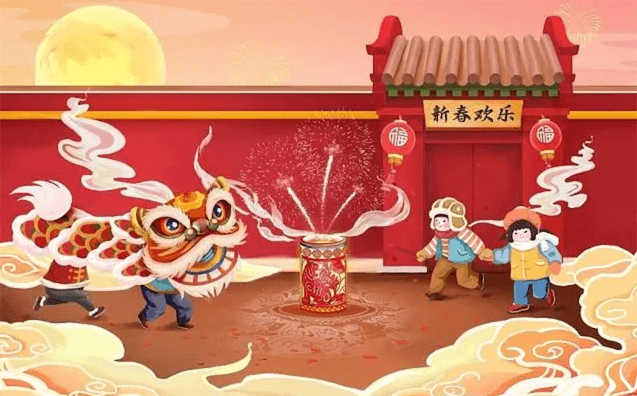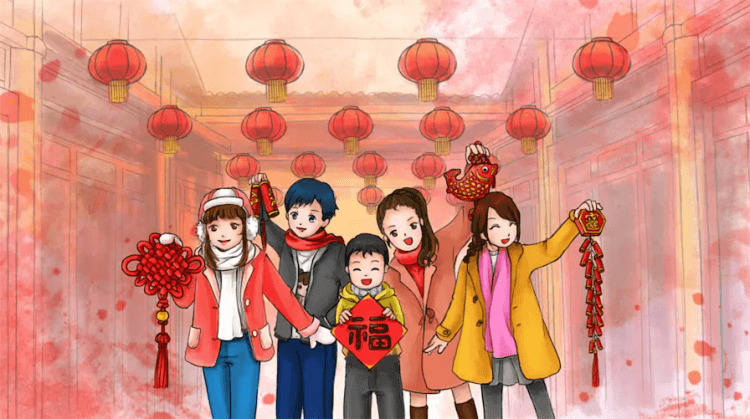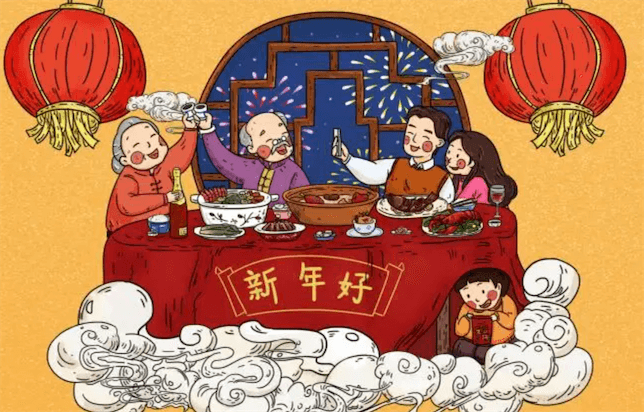春节介绍
- 370字
- 197阅读
The Chinese New Year is now popularly known as the Spring Festival because it starts from the begining of Spring (the first of the twenty-four terms in coordination with the changes of Nature). Its origin is too old to be traced. Several explanations are hanging around. All agree however that the word Nian which in modern Chinese solely means "year" was originally the name of a monster beast that started to prey on people the night before the beginning of a new year.
中国的新年现在被普遍称为春节,因为它从春天开始(二十四个节气中的第一个,与自然的变化相协调)。它的起源太古老了,无法追溯。有几种解释流传着。然而,所有人都同意,“年”这个词在现代汉语中仅表示“年”,最初是一种怪兽的名字,它在新年开始的前一天晚上开始捕食人们。
One legend goes that the beast Nian had a very big mouth that would swallow a great many people with one bite. People were very scared. One day an old man came to their rescue offering to subdue Nian. To Nian he said "I hear say that you are very capable but can you swallow the other beasts of prey on earth instead of people who are by no means of your worthy opponents?" So it did swallow many of the beasts of prey on earth that also harassed people and their domestic animals from time to time.
一个传说是,年兽有一张很大的嘴,一口就能吞下很多人。人们非常害怕。一天,一位老人来到他们的救援现场,准备制服年。他对念说:“我听说你很有能力,但你能吞下地球上的其他猛兽,而不是那些根本不是你的对手的人吗?”因此,它确实吞下了地球上的许多猛兽,这些猛兽也不时骚扰人们及其家畜。

After that the old man disappeared riding the beast Nian. He turned out to be an immortal god. Now that Nian is gone and other beasts of prey are also scared into forests people begin to enjoy their peaceful life. Before the old man left he had told people to put up red paper decorations on their windows and doors at each year's end to scare away Nian in case it sneaked back again because red is the color the beast feared the most.
之后,老人骑着年兽消失了。他原来是一位不朽的神。现在,年已经走了,其他猛兽也被吓进了森林,人们开始享受他们平静的生活。在老人离开之前,他曾告诉人们每年年底都要在门窗上贴上红色的纸装饰物,以防年兽再次溜回来,因为红色是野兽最害怕的颜色。
From then on the tradition of observing the conquest of Nian is carried on from generation to generation. The term "Guo Nian" which may mean "Survive the Nian" becomes today "Celebrate the (New) Year" as the word "guo" in Chinese having both the meaning of "pass-over" and "observe". The custom of putting up red paper and firing fire-crackers to scare away Nian should it have a chance to run loose is still around. However people today have long forgotten why they are doing all this except that they feel the color and the sound add to the excitement of the celebration.
从那时起,观察年征服的传统代代相传。“过年”一词可能意味着“熬过年”,今天变成了“庆祝(新年)”,因为汉语中的“过”一词既有“过去”的意思,也有“观察”的意思。如果年岁有机会逃跑,人们会用红纸和鞭炮来吓跑年岁的习俗仍然存在。然而,今天的人们早就忘记了他们为什么要这么做,除了他们觉得颜色和声音增加了庆祝活动的兴奋。

